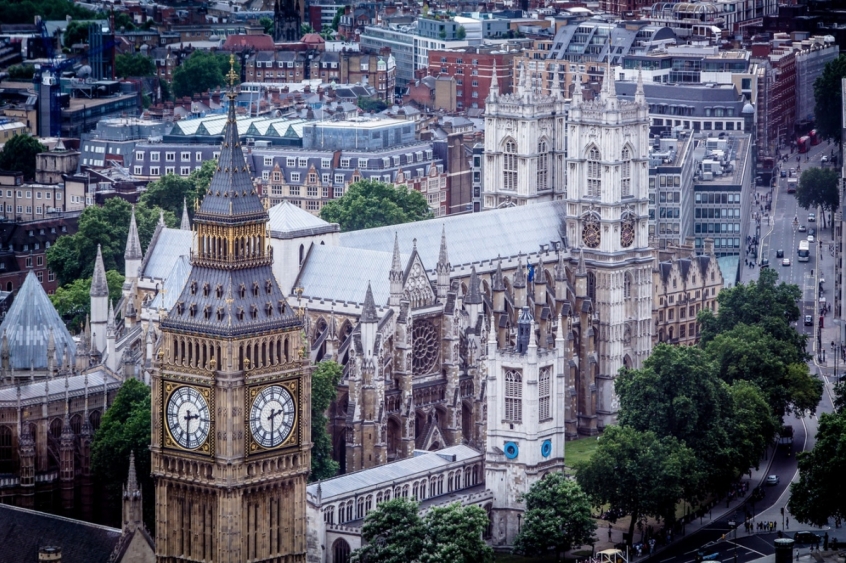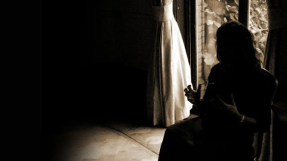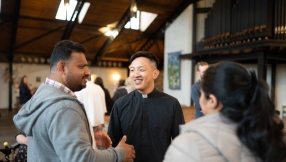
Over 700 church leaders from a wide variety of denominations and organisations have sent a joint letter to Boris Johnson and First Ministers of the devolved governments. There are doubtless many more who would sign and others who cannot in all conscience sign it, either because they don't agree with something in it, or because they do not want to be political.
I don't think this should be made a matter of Christian orthodoxy and hope that we will not fall into the social media trap of allowing different political perspectives to divide us. I won't be disfellowshipping, blocking or unfriending anyone who disagrees with me on this – I can't afford to lose any more friends! The way that Christians disagree about this should be an example to the world.
This is the letter that was sent:
As church leaders from across the four nations of the UK, we have been deeply concerned about the impact of the Coronavirus pandemic across society. We have carefully followed government guidance to restrict its spread. But increasingly our concern relates to the damaging effects of anti-Covid restrictions on many of the most important aspects of life.
Our God-given task as Christian ministers and leaders is to point people to Jesus Christ, who said he came to bring 'life in all its fullness'. Therefore, we are troubled by policies which prioritise bare existence at the expense of those things that give quality, meaning and purpose to life. Increasingly severe restrictions are having a powerful dehumanising effect on people's lives, resulting in a growing wave of loneliness, anxiety and damaged mental health. This particularly affects the disadvantaged and vulnerable in our society, even as it erodes precious freedoms for all. In our churches, many have been working tirelessly to provide help to those most affected.
We entirely support proportionate measures to protect those most vulnerable to SARS-CoV-2. But we question whether the UK Government and the devolved administrations have it in their power either to eliminate this virus or to suppress it for an indefinite period while we await a vaccine. And we cannot support attempts to achieve these which, in our view, cause more damage to people, families and society – physically and spiritually – than the virus itself.
The public worship of the Christian church is particularly essential for our nation's wellbeing. As we live in the shadow of a virus we are unable to control, people urgently need the opportunity to hear and experience the good news and hope of Jesus Christ, who holds our lives in his hands. The supportive relationships that churches nurture between people are vital, and simply cannot be dispensed with again without significant harm. And most of all, we know that regular gathering to worship God is essential for human life to be lived to the full.
We have been and will remain very careful to apply rigorous hygiene, social distancing and appropriate risk assessment in our churches. As a result, church worship presents a hugely lesser risk of transmission than pubs, restaurants, gyms, offices and schools; and it is more important than them all. We therefore wish to state categorically that we must not be asked to suspend Christian worship again. For us to do so would cause serious damage to our congregations, our service of the nation, and our duty as Christian ministers.
We therefore call upon the Westminster and devolved governments to find ways of protecting those who truly are vulnerable to Covid-19 without unnecessary and authoritarian restrictions on loving families, essential personal relationships, and the worship of the Christian Church.
To state the obvious, I signed this because I agree with it. I'm encouraged that the letter evidences both church unity and engagement with the culture on key current issues in our society. It also addresses key issues of concern.
It rightly recognizes the role of government in seeking to protect its citizens and stresses the willingness of the churches to be co-operative in attaining that goal. It avoids the party political, conspiracy theories and the blame game.
It advocates for the poor. The restrictions that are being imposed by governments have a disproportionate effect on the poor. To be confined to your home is a lot easier if that home is a house in a nice area, with a garden and if your job is a regular one paid for by the government. Lockdown is much harder if you live in a council flat and are part of the gig economy.
It recognizes that the virus cannot be cured or totally dealt with by governments and that attempts to do so may result in the cure causing more harm than the disease. The damage to the social fabric, economy, and health of the nation caused by lockdown may be many times worse than the damage caused by Covid.
To take just one example: when I was at university, I served on the welfare committee. I recall one year when nine students committed suicide. I thought of this on hearing the news that many students in Scotland are facing a strong lockdown – banned from going to pubs, from visiting others and even banned from visiting their homes. I wonder how much harm this will do to the mental health of our students? The politicians are desperately hoping that a safe and effective vaccine will be found soon. The church, of all groups, should recognize that we live in a broken world which no political system, or human endeavour can heal.
The letter recognizes the importance of public worship, not just for the Lord's people, but also for the wider health of the nation. It seems to me that many church leaders are afraid that their church will be the one where a Covid-19 cluster breaks out and that this will result in bad publicity. That is understandable, but it should not be our primary concern. It's not just politicians who are risk averse.
The letter expresses a right concern that the precedent of governments telling us when, how and whether we can worship in public, could result in a curtailment of religious liberty in the future. Churches in general are mature and considerate people who will take all the necessary precautions – without needing to be dictated to by governments.
While there may be rare occasions where, for a short time, the Government can close churches (as for example when we were ordered to close to 'save the NHS'), a long-term closure will do a great deal of harm, and churches should not be used in this way.
The letter looks to the eternal. I am deeply concerned that people may get Covid-19 and may die. I would never want either myself or any group I was part of to be a transmitter of that dreadful disease. But I also remember the words of Jesus, that we are to fear him who has the power to destroy both body and soul in hell, rather than just the one who has the power to destroy the body (Matthew 10:28).
We may not have the vaccine to stop Covid, but we do have the bread of life to offer hope and bring salvation. Yes, of course it is possible for us to offer that online, but not being able to gather together and offer hope in community is a major hinderance to our work. We should be free to meet together, taking the appropriate precautions.
Much of our secular society considers the Church to be either a quaint relic from the past, or the equivalent of a line dancing club in the present. We are an optional extra in today's society. This letter sees us as being at the very heart of a healthy society. I agree and that's why I signed it.
To sign the letter visit https://ministersletter.wordpress.com/
David Robertson is director of Third Space in Sydney and blogs at www.theweeflea.com
Views and opinions published in Christian Today are those of the authors and do not necessarily reflect the views of the website.













